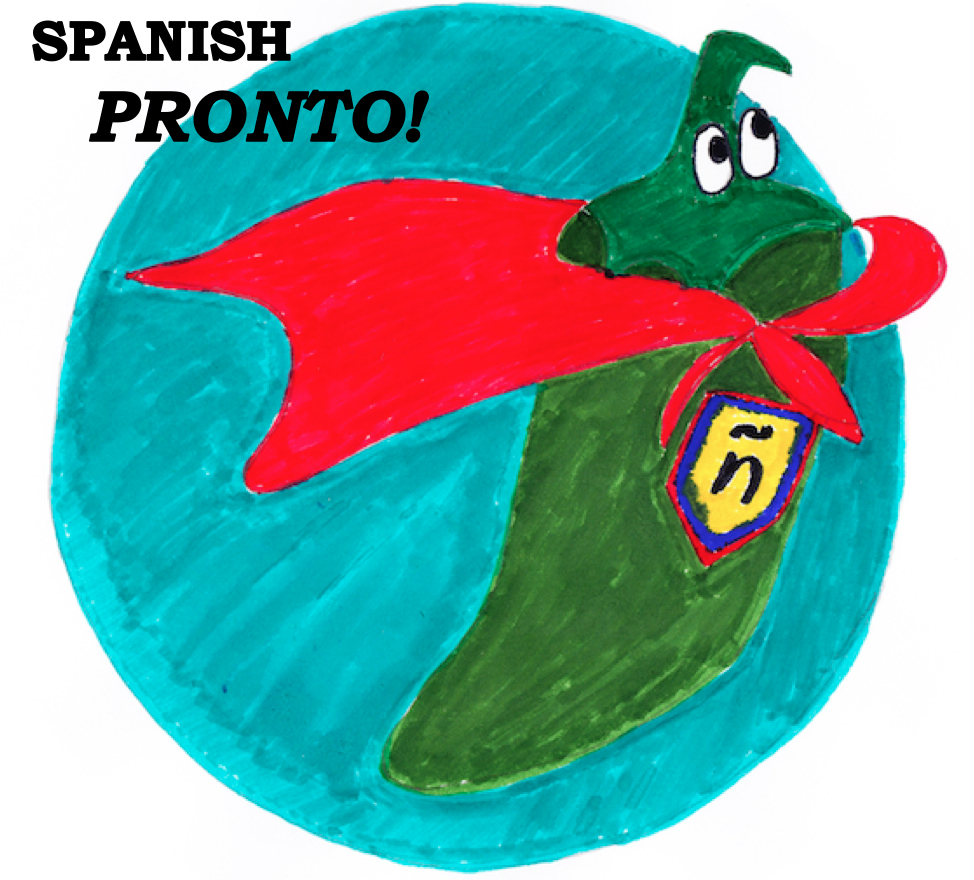
Spanish Vocabulary
Learn 10 Spanish words per day and know 2,500 words after one year!Many words in Spanish and English are similar, but similar words can have very different meanings, so be careful.
nombre m. namepueblo m. town; (el pueblo the people)
don m. doña f. (a title of respect used before a person's first name) don m. gift, talent (don de gentes m. a talent for dealing with people)
unido united; close-knit (unido, unida, unidos, unidas)
tierra f. land, dirt, ground, earth; country, land, home country, hometown (la Tierra Earth)
señor m. Mr., mister; man, gentleman; sir (señor, señores); (el Señor the Lord) señora f. Mrs.; woman, lady; ma'am, madame (señora, señoras); señorita f. Miss; girl, young lady; miss (señorita, señoritas)
América the Americas
empresa company
dinero money
mercado market
Words pronunciation: 0:57 (57s)
Don and doña are used to address or refer to people who are respected, whether because they are older than the speaker, or because they are very accomplished, or are respected for any other reason. "Don" sounds like "doan," not like the name Don. These words can be used alone, but are often used before the respected person's name: don Carlos, doña Elena (in modern Spanish don and doña are not capitalized).
"Dona," without the ñ, is a Spanish word for "doughnut" (or "donut").
The country United States of America (USA) is Estados Unidos de América (EUA) or Estados Unidos (EE.UU.). "In the United States" is "en Estados Unidos." The use of "los" ("en los Estados Unidos") is either an indicator that the speaker is emphasizing the various states of the United States rather than the country as a whole, or that the speaker is from the U.S. (and/)or Puerto Rico. Outside of those areas, when referring to the whole country, there is no need to use the "los."
The English plural of Mr. is Messrs (Messieurs). The English plural of Mrs. is Mmes (Mesdames). These are both so formal as to be almost never used, but they do exist. The more common English translation of "señoras y señores" is "ladies and gentlemen."
"Señor," etc., are not capitalized in modern Spanish. Their abbreviations are capitalized: Sr., Sra., Srta.
Señorito does exist, but not generally as a title of respect. It is more common as a pejorative term for a young man who is perceived to owe his wealth, position, or power to being the son of someone rich or powerful, rather than to his own talents or achievements.
América means the one continent that includes all of North America (including Greenland and Central America), South America, and the Caribbean. "Americans" are "estadounidenses." "Americanos" are all the people in any of the countries of "América."
"Las pymes" are "las pequeñas y medianas empresas" ("(the) small and medium-sized businesses"). It is an acronym that was used so much it became a word.
"Mercado" can be a market (such as a farmers' market), the demand and supply for a particular commodity, or the national or world economy generally.
a su gato le dio el nombre "Fluffy" she gave her cat the name "Fluffy" ('to her cat to it she gave the name Fluffy')¡el pueblo, unido, jamás será vencido! the people, united, will never be defeated!
don Miguel y doña Ana están celebrando sus bodas de oro Miguel and Ana are celebrating their fiftieth wedding anniversary ('their wedding [celebration] of gold')
somos una familia muy unida we are a very close-knit family
"no hay profeta sin honra sino en su propia tierra y en su casa" "a prophet is not without honor except in his own country and in his own house" —Jesus of Nazareth (talking about Nazareth)
este verano voy a leer El señor de los anillos this summer I am going to read The Lord of the Rings
dividen su tiempo entre América y Asia they divide their time between the Americas and Asia
este carro no es mío; es de la empresa this car is not mine; it belongs to the company
¿de dónde vendrá el dinero? de donde está ahora where will the money come from? from where it is now
desafortunadamente se consiguen muy fácil en el mercado negro unfortunately they are very easily obtainable on the black market
Examples pronunciation: 1:00 (60s)
© 2017-2018 Chris Marquardt, Spanish Pronto
http://www.spanishpronto.com/vocabulary_0001.html
http://www.spanishpronto.com/vocabulary_0002.html
http://www.spanishpronto.com/vocabulary_0003.html
http://www.spanishpronto.com/vocabulary_0004.html
http://www.spanishpronto.com/vocabulary_0005.html
http://www.spanishpronto.com/vocabulary_0006.html
http://www.spanishpronto.com/vocabulary_0007.html
http://www.spanishpronto.com/vocabulary_0008.html
http://www.spanishpronto.com/vocabulary_0009.html
http://www.spanishpronto.com/vocabulary_0010.html
http://www.spanishpronto.com/vocabulary_0011.html
http://www.spanishpronto.com/vocabulary_0012.html
http://www.spanishpronto.com/vocabulary_0013.html
http://www.spanishpronto.com/vocabulary_0014.html
http://www.spanishpronto.com/vocabulary_0015.html
http://www.spanishpronto.com/vocabulary_0016.html
http://www.spanishpronto.com/vocabulary_0017.html
http://www.spanishpronto.com/vocabulary_0018.html
http://www.spanishpronto.com/vocabulary_0019.html
http://www.spanishpronto.com/vocabulary_0020.html
http://www.spanishpronto.com/vocabulary_0021.html
http://www.spanishpronto.com/vocabulary_0022.html
http://www.spanishpronto.com/vocabulary_0023.html
http://www.spanishpronto.com/vocabulary_0024.html
http://www.spanishpronto.com/vocabulary_0025.html
http://www.spanishpronto.com/vocabulary_0026.html
http://www.spanishpronto.com/vocabulary_0027.html
http://www.spanishpronto.com/vocabulary_0028.html
http://www.spanishpronto.com/vocabulary_0029.html
http://www.spanishpronto.com/vocabulary_0030.html
http://www.spanishpronto.com/vocabulary_0031.html
http://www.spanishpronto.com/vocabulary_0032.html
http://www.spanishpronto.com/vocabulary_0033.html
http://www.spanishpronto.com/vocabulary_0034.html
http://www.spanishpronto.com/vocabulary_0035.html
http://www.spanishpronto.com/vocabulary_0036.html
http://www.spanishpronto.com/vocabulary_0037.html
http://www.spanishpronto.com/vocabulary_0038.html
http://www.spanishpronto.com/vocabulary_0039.html
URL for this page: http://www.spanishpronto.com/vocabulary_0035.html